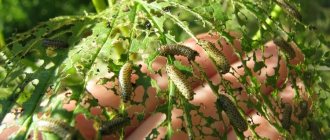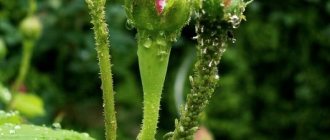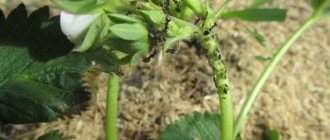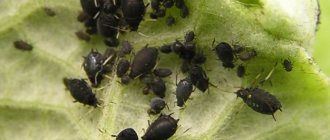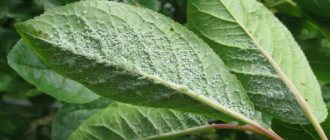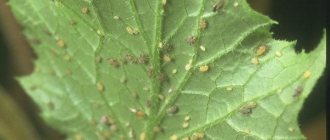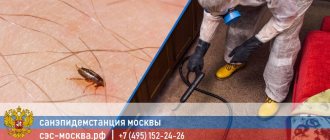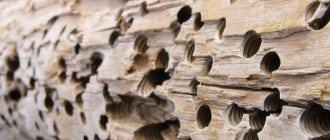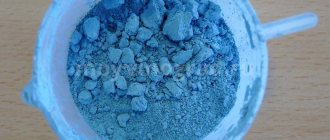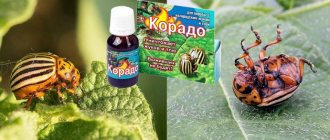Aphids are one of the fastest growing pests. Wingless female insects are capable of laying eggs even without fertilization by males. If the summer is hot, but there is no drought, then more than 10 generations may appear during the season.
Aphids suck the juice from young shoots of plants and spread dangerous viral diseases, so if measures are not taken in time to destroy the pests, there will be no harvest. Stores sell many drugs designed to kill aphids. However, most of them contain potent poisons that take more than a month to remove from the fruit. In addition, toxic substances kill not only harmful insects, but also beneficial ones, and when they get into the soil, even earthworms.
Therefore, many gardeners prefer to use a folk remedy that is safe for people and pets - vodka (ethyl alcohol, moonshine) to combat aphids.
Instructions for using vodka against aphids
Any vodka, alcohol or moonshine is suitable for spraying plants. You can use the “heads” of moonshine (the upper fraction), which still cannot be distilled again.
Treatment of garden plants should be carried out in the evening, at sunset, when insects become inactive. In bright sunlight, there is a high chance that plant leaves will get burned.
When spraying, you need to try to ensure that the liquid wets the leaves both above and below: pests often hide on the underside of the leaf blade. The water for preparing the solution should be warm (+25–27 °C).
Laundry or special green soap (sold in gardening stores) must be added to the spraying solution at the rate of 20 g of crushed soap per 1 liter of liquid. Soap shavings are first dissolved in a small amount of warm water and then mixed with the rest of the liquid.
Soap has a triple function:
- serves as an adhesive;
- compacts the leaves, making them “waxy”, which is why the pest cannot pierce them;
- clogs the breathing holes of aphids.
Ethanol in the fight against aphids
The fight against aphids can be considered as part of the care of garden and vegetable crops, since it must be carried out regularly and consists of complex treatments. These insects reproduce very quickly and can settle and reproduce on almost all plants. Aphids feed on the sap of leaves and stems and also spread viral and bacterial infections.
Stores offer many powerful insecticides that will help you quickly get rid of aphids. But you need to keep in mind that such substances can harm the ecosystem of your garden and destroy beneficial insects. Pesticides, which are contained in most drugs, fall into the ground, and then are absorbed by plants with moisture, accumulate and are deposited in the fruits.
To combat aphids, you can use alcohol, any type of vodka, or moonshine.
That is why gardeners are increasingly using traditional methods to combat parasites. The use of ethanol against aphids is widespread, since this element is absolutely safe for children and pets.
To treat plants, you can use not only alcohol, but also any vodka or moonshine. Even unsuitable for consumption pervak or “heads and tails” of moonshine, which are separated during the distillation of this product, are suitable.
Ethanol helps in the fight against aphids, as its vapors have a detrimental effect on the central nervous system of these insects. Their respiratory process is disrupted, and they lose the ability to stay on plant stems. Those individuals that have not fallen cannot continue to feed: the smell and bitter taste repel parasites.
Recipes for killing aphids with vodka
No. 1. Add 300 ml of vodka or 150 ml of alcohol and soap shavings to 1 liter of water. This solution is only suitable for treating trees and fruit bushes.
No. 2. To treat roses and other ornamental shrubs, vegetables and berries, mix 1 liter of water, 100 g of vodka and soap.
No. 3. Pour 1 liter of Coca-Cola into a container and leave for a day so that the gas evaporates. Then add 100 ml of vodka and soap to the drink. Coca-Cola contains acids that are toxic to aphids, and alcohol enhances the effect of these substances.
No. 4. Mix 1 liter of water, 300 ml of vegetable oil, 100 ml of vodka and soap. Vegetable oil forms a thin film that prevents aphids from breathing. It is advisable to use unrefined oil, since the smell of refined oil attracts mole crickets.
Treatment for aphids of currants and other fruit bushes
Most often, currants suffer from aphids. If the fruit bush is blooming, then for spraying you should prepare a solution according to recipes No. 2 or No. 3. For a bush with ovaries, the liquid according to recipe No. 1 is well suited.
It is advisable to cut off the tops of branches, especially those heavily affected by aphids, and burn them. If it’s a shame to cut off the branches, you can dip them one at a time into the solution for 3–5 seconds. The rest of the bush is thoroughly sprayed.
It must be remembered that aphids do not fall onto the branches themselves: they are brought by ants. To prevent ants from bringing pests again, millet is poured around the bushes.
Spraying trees
The recipe for treating trees against aphids with vodka is chosen according to the same principle as for shrubs: if the tree is blooming, then recipe No. 1 is not suitable.
After getting rid of aphids, you need to block the ants' access to the tree crown. To do this, special traps are glued to the trunk. Another option: the trunk is wrapped with a strip of old fabric 20–30 cm wide. Ordinary fly strips are glued onto it. Millet is poured around the tree.
Spraying vegetable and berry crops
Some plants are natural “alcoholics”. For example, the solution according to recipe No. 1 is suitable for spraying tomatoes. Alcohol destroys the causative agents of blackleg. And tomatoes sprayed with it ripen faster. German scientists have proven that if you inject 0.5 ml of vodka into a milky-waxy tomato with a medical syringe, the fruit will ripen several weeks earlier.
Cucumbers also tolerate spraying with solution No. 1 very well. More delicate strawberries or wild strawberries are treated with solution No. 2 or No. 3. It is dangerous to use solution No. 4 so as not to attract a mole cricket.
The remaining plants should first be tested for tolerance to ethyl alcohol. To do this, treat one bush or one shoot. If after 24 hours the plant looks healthy and there are no burns, the entire plantation is sprayed.
Treatment of roses and chrysanthemums with vodka against aphids
Roses are tender and capricious. For spraying most varieties, solutions No. 2 or No. 4 are used. But first it is better to test the effect of the liquid on one shoot. If burns appear on it within a day, the concentration of vodka should be halved (add 1 liter of water and 20 g of soap to the solution). Before spraying, the tops of the shoots are dipped into the solution.
Chrysanthemums affected by aphids are treated in the same way as roses.
Feeding tomatoes
Plants extract minerals from the soil. The main source of energy, carbon dioxide, is obtained from the air through photosynthesis. This only happens during the daytime, in good lighting conditions. The longer the daylight hours, the faster the culture develops.
During peak solar activity, plants absorb the maximum amount of carbon dioxide. There is enough of it in the environment, but not enough for tomatoes grown indoors. And if there is a lack of energy, any fertilizer will be ineffective.
Feeding indoor flowers and other plants with aloe juice
Read
Decembrist fertilizer: what to feed it so that it starts to grow well and bloom?
Look
Vegetable growers solve this problem by fertilizing with carbon dioxide. In large greenhouses, special cylinders are installed, and the process itself is automated. In amateur farms, tomatoes are fed with vodka. Ethyl alcohol is easily absorbed through the surface of the leaves and participates in metabolism.
Instructions:
- Prepare a 1% solution. One part of vodka is diluted in 40 parts of water. A bottle (0.5 l) is enough for 20 l of water or 100 ml for 4 l.
- Tomato bushes in a greenhouse are sprayed 1-2 times a week, for a month (from June 15 to July 15). They do this in the morning, when it is already sunny, but not yet hot. At this time, alcohol does not evaporate so quickly from the surface of the leaves. The solution is not stored. Each time a new portion is prepared.
This treatment will enhance the effect of basic fertilizers, improve yield and taste characteristics.
Autumn feeding with vodka accelerates the ripening of late-ripening varieties. Suitable for tomatoes in greenhouses and open ground. This is especially relevant in areas of risky farming. Apply at the end of the season, when the fruits are already formed, but there is a possibility that they will not ripen themselves:
- A glass of vodka (250 ml) is diluted in a bucket of water.
- Water in the first half of the day, at the root, 0.5 liters per bush, 1-2 times a week.
Root feeding is continued until the phase of technical or biological ripeness of the fruit.
How to prepare a working solution
In principle, working with ethyl alcohol is not difficult. But test processing will be required. It’s one thing if you use 40-proof vodka, and another thing if you use alcohol, the degree of which is much higher. Try spraying the product on the plant. If you see burns after a day, dilute moonshine or alcohol in water and repeat the test.
Experienced gardeners say that it is good to spray trees and shrubs with pure alcohol. But roses require more careful treatment. You will need to initially prepare a multi-component composition.
So, the rules for using alcohol for treating roses are as follows:
- carry out a test, the result of which will be known in a day;
- for flowers, prepare a composition in which vodka will be one of the components.
Buy a cheap product, it contains more fusel oils, so it is more effective.
We use vinegar
If you notice aphids on cabbage, vinegar will help. We dilute a tablespoon of acid in a liter of water and apply it to the fork and the ground around it, since larvae can be found in warm soil.
The procedure must be repeated after a week, and if the weather turns bad and it rains, then the next day.
Efficiency of the method
Let's look at some reviews about the results of fighting aphids using vodka, the effectiveness of which many gardeners have already been able to verify.
"Thanks a lot! I treated it with vodka, so far it’s effective - not a single green animal is visible anymore. I hope it helps! " (Katerina M.)
“Spraying with vodka and Coca-Cola worked well.” (Love L.)
“I once splashed vodka
